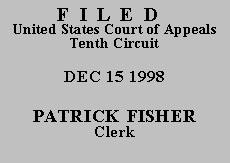

| UNITED STATES OF AMERICA,
v.
PETER BASS |
|
Defendant brings this pro se appeal pursuant to 28 U.S.C. § 2255. Defendant appeals the order of the district court denying defendant's motion to vacate, set aside, or correct defendant's sentence, and therefore denying his petition for a writ of habeas corpus under the provisions of 28 U.S.C. § 2255. The district court further denied a certificate of appealability and refused to grant defendant the right to appeal in forma pauperis.
In this appeal, the defendant seeks a certificate of appealability authorizing him to appeal pursuant to the provisions of the Antiterrorism and Effective Death Penalty Act (AEDPA). We decline to grant the certificate of appealability and agree with the district court that defendant is not entitled to proceed in forma pauperis.
In his § 2255 petition defendant claims that: (1) his sentence exceeds the statutory maximum; (2) that he was not advised of the effects of revocation of supervised release or of acceptance of the plea agreement; and (3) that he received ineffective assistance of counsel. Defendant's claims all arise out of defendant's arguments related to his understanding of the effects of the plea agreement and the effects of revocation of supervised release. It appears to be undisputed that during the plea negotiations there was a misunderstanding of the parties with respect to the application of the career offender provisions of the United States Sentencing Guidelines as they would be applied in defendant's case. The record is clear, however, that defendant was fully advised in his change of plea hearing on September 18, 1995, as to the length of the minimum or maximum sentence that could be imposed and that none of this colloquy was negated or invalidated by a later clarification of the applicability of the career offender provisions. Defendant's sentence of ten years imprisonment and eight years of supervised release did not exceed the statutory maximum sentence. Defendant was fully advised with respect to the statutory penalty. Further, the record makes clear that defendant was advised in an addendum to the plea agreement that supervised release would be imposed. Where the court failed to advise defendant of the effects of revocation of supervised release, defendant must show that such failure affected his substantial rights. Defendant has failed to make that showing. Indeed, on this record defendant has failed to show in any way that he would not have pleaded guilty had he been informed of the effects of supervised release. The district court gave defendant an opportunity to withdraw his plea because of the misunderstanding regarding the applicability of the career offender provisions of the Sentencing Guidelines. Defendant chose not to withdraw his plea. This record reveals no basis on which to determine that had the effects of revocation of supervised release been explained to him, defendant would have refused to plead guilty.
Defendant further appeals on the grounds that he was denied effective assistance of counsel at both the trial level and on direct appeal where counsel failed to properly inform defendant of the consequences of his guilty plea and failed to raise this issue on direct appeal. It is well settled in this circuit that issues of ineffective assistance of trial or appellate counsel should not be raised on direct appeal but should be raised in a § 2255 proceeding. Thus, we cannot say that appellate counsel was ineffective for failing to raise the ineffectiveness claim on direct appeal. After reviewing this record, we cannot say that either trial counsel nor appellate counsel rendered ineffective assistance to defendant. Defendant has failed to show that the performance of either attorney prejudiced his defense. See Strickland v. Washington, 466 U.S. 668, 691 (1984). Defendant's claims with regard to ineffective assistance of counsel relate to the alleged failure of counsel to object to or call attention to alleged Rule 11 errors that occurred at the change of plea hearing and at the sentencing hearing. The record fails to reveal that there were any substantial substantive errors that would give rise to a claim of ineffective assistance in the conduct of the proceedings. Further, defendant has failed to demonstrate that he would have insisted upon going to trial or would have withdrawn his guilty plea but for the alleged deficiencies of counsel. As noted above, defendant was given the opportunity to withdraw his plea and to proceed to trial. The record is clear that after having reviewed the presentence report, consulted with additional attorneys, and consulted with his counsel of record, defendant elected to persist in his guilty plea. Thus, we cannot say that the performance of trial counsel prejudiced defendant's defense. Further, because the allegations related to ineffectiveness of trial counsel failed to show prejudice to the defendant, we cannot say that appellate counsel was deficient in failing to raise alleged Rule 11 violations on appeal.
We find that defendant has failed to raise issues that are debatable among jurists, that a court could resolve the issues differently, or that the questions deserve further proceedings. United States v. Sistrunk, 111 F. 3d 91, 91 (10th Cir. 1997). We deny the certificate of appealability. We deny the motion to proceed in forma pauperis pursuant to the provisions of Fed. R. App. P. 24. The appeal is dismissed.
ENTERED FOR THE COURT,
Deanell Reece Tacha
Circuit Judge
*.This order and judgment is not binding precedent, except under the doctrines of law of the case, res judicata, and collateral estoppel. This court generally disfavors the citation of orders and judgments; nevertheless, an order and judgment may be cited under the terms and conditions of 10th Cir. R. 36.3.